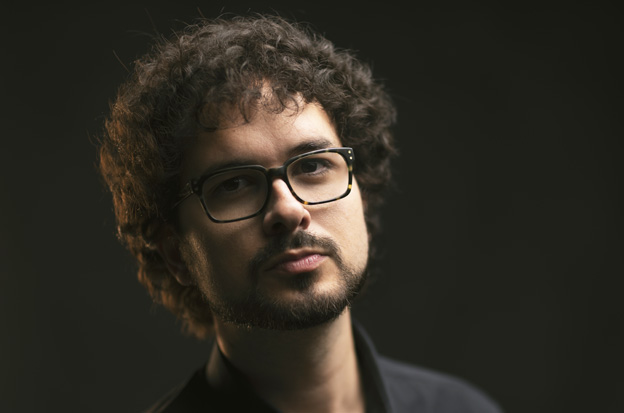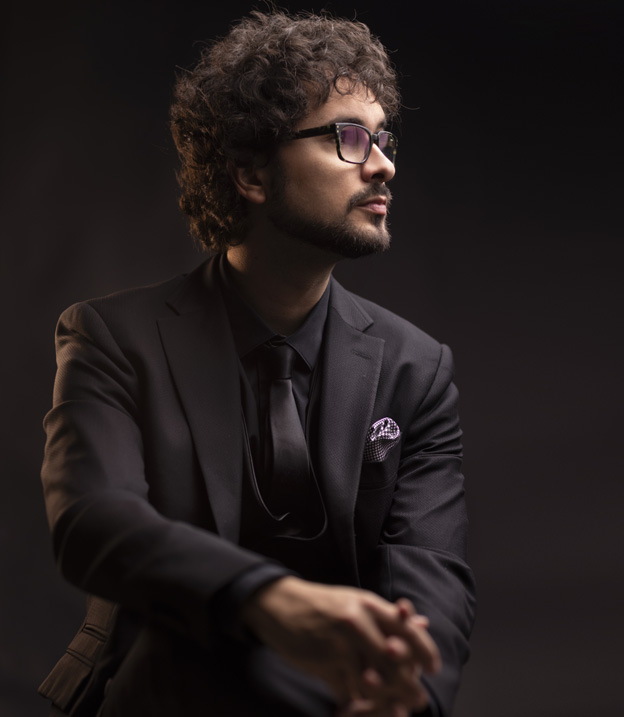You won more than 30 First Prizes in competitions all over the world. What did this bring to you and your career?
It has given me, above all, an unforgettable experience performing on stage. I truly believe that opportunities on stages are what forge musicians, as they have instilled an unyielding drive within me to continually set goals to grow as an artist. I also must add that I have met wonderful people, both jurors and participants from whom I have learned invaluable wisdom that has profoundly shaped my musical career.
How important are competitions for a young musician, generally speaking?
Competitions for young musicians are very important. They offer an opportunity to try out a repertoire, gain recognition, and experience playing in an auditorium. As I mentioned previously, opportunities on stages are what forge musicians. Competition, as well, is a valuable tool we can use to build strong skill sets. Why not use it? Of course, the economic view on this matter is also important, however, for me, it has never been the priority.
You studied with many teachers and attended many masterclasses. Which pianist influenced you most?
I value everything taught to me by every single one of my teachers incredibly. The many contributions they have made along my musical journey is something I will forever be grateful for. However, I would like to specially mention my last two teachers, Leonid Margarius and Boris Petrushansky. During that period in my life, I had already established a strong foundation in musicality and technique, but with Margarius and Petrushansky’s guidance I was able to delve deeper into the complexities of the works I performed. This uncovering hidden layers of meaning and emotion shaped my identity as a musician. I am especially grateful to them for influencing me to embrace the challenges of interpretation and to find my own voice within classical music.
Today, you are a respected teacher yourself. What is the most important message you would give to a young pianist?
The first thing I would ask is, “Do you truly love music?” Followed by, “Would you be able to set your heart down to dedicate your entire life to music?” If so, it is crucial to be consistent and patient. You must never stop loving music and persevere through difficult times, as a career in music is not an easy path. Eventually, little by little, your life will be shaped around music.
I am often told that due to a huge population of talented pianists, an international career is difficult to build up. How do you see this?
I agree, it is definitely not easy. There is no shortage of talent among pianists, instead many lack perseverance. Each one of us is unique, and I believe it is important to find what your best profile is. Take advantage of the pieces that are suited to your musical and technical skill and work diligently to differentiate yourself in a competitive market.
You are a Delegate of the Eutherpe Foundation, an Ambassador of Talent in the Promete Foundation, and Director of the Concert Series El Piano de Cañada Blanch in Valencia. Is this social involvement something that helps you in your career?
For me, my dream has always been to immerse myself in music and be surrounded by people who share that passion. So in my case, my “career” is not just performance and teaching, it serves to also provide opportunities to young talents. To me, organizing activities around music and piano nurtures their passion and love for music, which I consider to be the most important thing to any musician. This is what I value, and it’s why I belong to these wonderful social events.
And what about social media? It looks like you don’t have a personal website, but you are very active on social media.
Yes, especially nowadays, it’s important to utilize social media. It’s important to have a platform for professionals in many fields, showcasing your work, and making yourself known in the world. Social media is wonderful because you have creative freedom in everything you share. Personally, I use it exclusively for my professional profile. It is your own account, and in turn your own choice in how you express and showcase yourself. You do not need to depend on others to build a social brand, as only you can provide your authentic self.
In which sense is your Spanish background important for you? Where do you belong, musically?
My studies began in Spain, and thanks to them, I had a solid and professional foundation for my musical beginnings and I was able to make informed decisions about my career path. I don’t believe it’s possible to “belong” to a specific place musically, as each composer has their unique language and culture, each piece of advice comes from a different great master, and every new interpretation we hear all contribute to our musical growth. Today, the amount of information and artistic stimuli available is extremely vast. I think one of the most crucial aspects is to not lose sight of our own musical essence – the intuition, the inner musical voice that guides us and makes us unique in such a rich and complex world.
What’s the best thing about being a pianist?
The best thing about being a pianist is the ability to move the public through music, as well as being connected with so many unique works of art.
What goals and milestones do you have for the future? What are you working towards?
Apart from some concerts that I am looking forward to, such as my tours in Mexico and Japan, I am working on my next album with works by Chopin and Ravel. In the coming months, I will be videotaping Chopin’s Ballades in one of the most emblematic buildings in my city, Valencia, but without doubt, my most important objective is to continue training all the students who come to study with me at ESMAR, the music school where I currently work at.



















